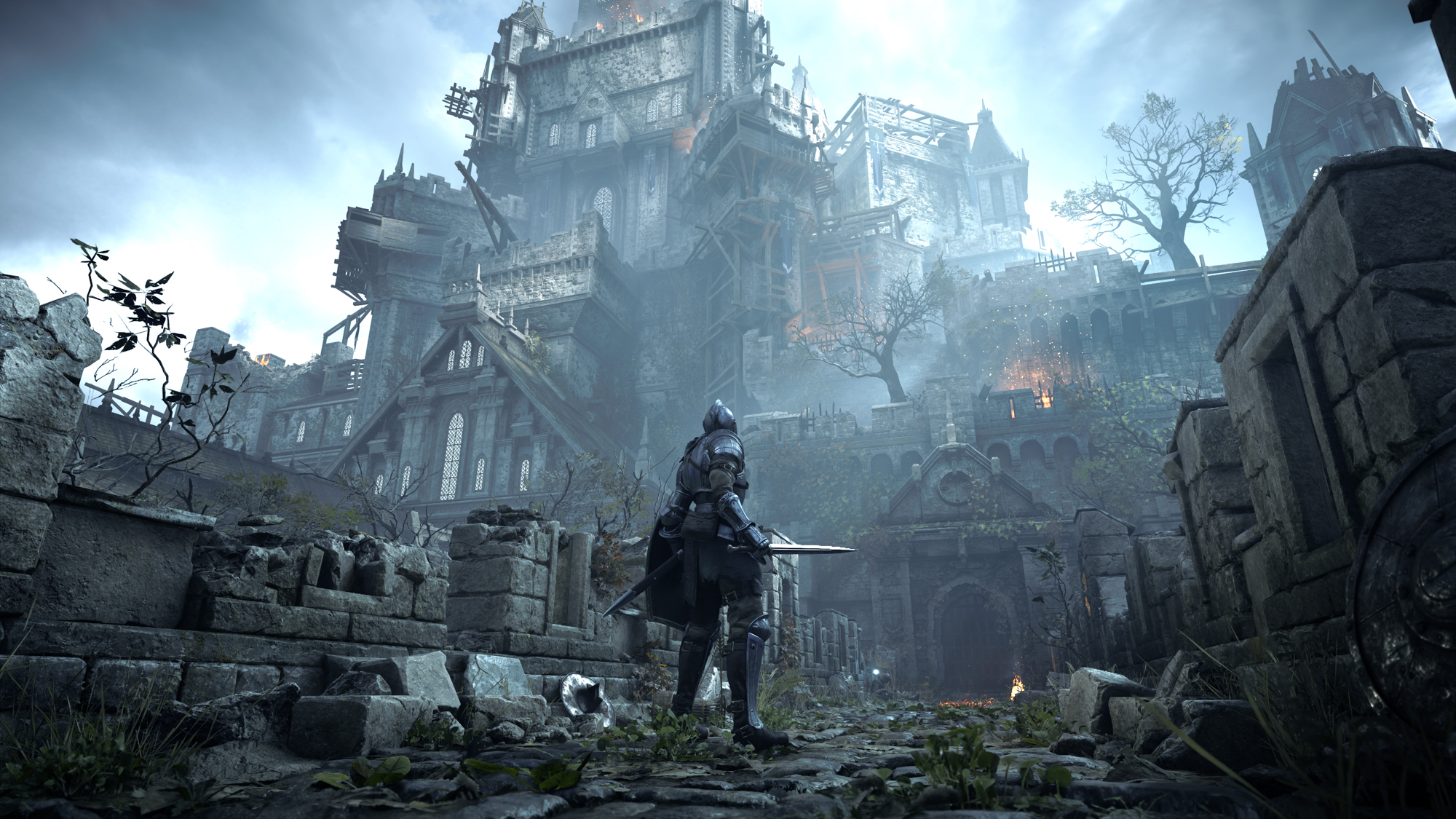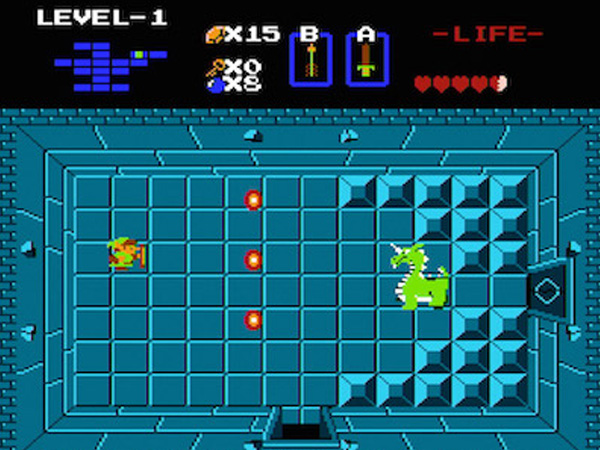Are video game remasters good — or just a waste of money?
Are video game remasters expert — or just a waste of money?

It's been a bumper ingather yr for video game remasters. In the final 12 months lonely, we've seen current-gen remasters of Demon's Souls, Nioh, Scott Pilgrim vs. The World, Age of Empires III, SpongeBob Squarepants: Battle for Bikini Bottom and Warcraft Iii - and that'south just for starters. Sci-fi fans are currently enjoying the Mass Issue Legendary Edition remasters, while The Legend of Zelda: Skyward Sword HD remaster is only a few months away.
Based on the aggressive release schedule, you'd be forgiven for thinking that gamers don't desire to play annihilation except remasters of old favorites. Indeed, there's a very contemptuous school of thought that states remasters exist only to minimize developer attempt while maximizing publisher profit. Why make something new and risky when you can brand fans very happy (and willing to pony upwardly cash) merely by porting an old game to a new console?
- Play the all-time Xbox Series X games
- As well effort the all-time PS5 games
- Plus: fifteen new movies and TV shows to picket this weekend on Netflix, Apple TV and more than
I recently discussed this topic on a TechRadar web show chosen Seriously? Tom Farthing from GamesRadar, Matt Philliips from TechRadar, Sherri Smith from Laptop Mag and I put our heads together to meet if we could come to a definitive conclusion about video game remasters. Are they a benefaction for nostalgic players, a necessary evil for a fast-moving industry or a greedy cash-take hold of?
First things first: If you have 20 minutes to spare, you can spotter our word on YouTube and find out for yourself. It's too embedded beneath:
If non: I took the balanced approach. Video game remasters are not as skillful as getting something brand-new, and it's a little troubling that publishers often treat them as such. On the other hand, we live in a world with abysmal video game preservation. If we don't occasionally refresh one-time games for newer systems, how will we revisit them - and how will younger gamers discover them for the first time?

Why video game remasters are bad
Get-go off: I'm glad that the Seriously? crew let me take the centre path when information technology comes to remasters. Like many things in the gaming world, they have some very real pros and cons. In that location'due south no denying, however, that my feelings on remasters are generally more than negative than positive.
My principal argument against remasters is that they inculcate a weird sense of loyalty and gratitude in gamers. Every fourth dimension a high-profile remaster gets announced, await at the reactions it gets. At in-person events, there'due south raucous applause and auspicious. On social media, in that location are ALL-CAPS PAEANS TO THE ORIGINAL and gushing thanks to the publishers for bringing back a beloved function of their childhood. (It'south almost always something from childhood; nostalgia is powerful, and publishers are well aware of that.)
I'one thousand all for people being able to play what they want, on whatever systems they currently own. What I don't become, however, is the incoherent excitement for something that players take already experienced - in many cases, dozens of times. (Ask the people who were really excited for Mass Effect Legendary Edition how many times they'd already played the trilogy.)
While remasters do indeed take a lot of work, in that location's no denying that they're generally easier to produce than coming upwards with a whole game - story, mechanics, fine art style, everything - from whole material. That's truthful for new entries in an existing serial, and doubly truthful for daring new IPs. The idea that developers are doing players a favor past feeding them comfort nutrient (and frequently charging them full toll for the privilege) is a baroque and somewhat insidious form of brand loyalty.
Big companies, with plenty resources to develop whatever number of absurd new ideas, put out the same old stuff. The gaming public interprets this as an deed of magnanimity. The public plays the same old stuff one more than time - and when the remastered remaster comes out a few generations later, y'all'd better believe that they'll play information technology once again.
Granted, no one is forcing anyone to buy and play remasters, and replaying old games is as valid a way as any to spend your leisure time. Only information technology'due south a bit unusual just how uncritical the gaming public can be about remasters in general, considering how demanding information technology is regarding every other aspect of game development.

Why video game remasters are good
On the other hand, there's a reason why publishers keep pumping out remasters: considering gamers really like them. A well-made remaster genuinely makes a lot of people happy, from the Ratchet & Clank Collection on PS3, to the Mass Upshot Legendary Edition but a week agone. Replaying adept games is fun; games are easier to replay on modern hardware; a good quondam game is a better use of your time than a lackluster new game. There's nothing inherently cynical here.
However, I'd argue that the primary good of video game remasters isn't replaying old favorites. Rather, it's that a whole new generation of players gets to experience cracking games, which are often difficult-to-discover in their original forms.
Let's take the recent Super Mario 3D All-Stars on Nintendo Switch as an example. This remastered collection included Super Mario 64 (N64), Super Mario Sunshine (GameCube) and Super Mario Milky way (Wii), all in one modern package. From a technical perspective, information technology was not a peachy remaster, suffering from bugs, limited availability and a full general lack of meaningful improvements.
On the other manus, all three games are excellent entries in the long-running, kid-friendly Mario series. The most recent game in Super Mario 3D All-Stars came out on the Wii, which Nintendo discontinued in 2013. A young Mario fan with a Switch today may well have been born after that. It's not reasonable to expect a kid - or their parents - to track down iii retro consoles just to play a few Mario games.
From The Last of Us to Resident Evil 3, there will always be gamers who were also young to experience a game the commencement time effectually, or who simply lacked the necessary hardware. We can't await every single gamer to become a retro collector too. If we desire new players to experience former games, then publishers need to release those onetime games on new consoles.

Video game preservation
All the same, this wouldn't be so much of an issue if the state of video game preservation weren't so dire. Of the iii major panel manufacturers, only Microsoft has made a significant commitment to backwards compatibility - and fifty-fifty and then, it's not equally though yous can play the whole Xbox/Xbox 360 library on an Xbox Series X/S. Sony almost shut down the PS3 and Vita digital stores; the PSP store is still doomed. Nintendo has a paltry selection of retro games in its Switch Online service, none of which you can purchase à la menu. The Wii Shop went dark years ago; the 3DS eShop has followed in many territories.
The message seems clear enough: Video game publishers don't want you to buy quondam games, fifty-fifty if you have the right hardware to play them. At the same time, publishers have likewise cracked downwardly on ROM sites, so you tin can't fifty-fifty download old games from third-party sources. Many former games are flat-out impossible to play for the average consumer, and merely slightly easier for tech-savvy retro enthusiasts who understand the ins and outs of emulation.
There'south no easy solution for video game preservation, although it's worth noting that movies face up a like problem. In fact, half of all films produced before 1950 are probably lost forever.
Remasters are one way to ensure that honey video games stay with us for generations to come. They're also one style to ensure that nosotros come dorsum to the same handful of familiar serial over and over, instead of enervating more innovative fare. Let's endeavor to discover a wise balance.
Source: https://www.tomsguide.com/news/video-game-remasters-good-bad
Posted by: estradabeemeart.blogspot.com


0 Response to "Are video game remasters good — or just a waste of money?"
Post a Comment